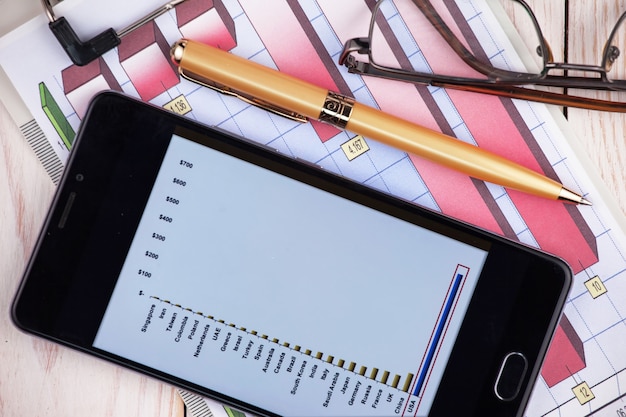Personal Finance: US Residents’ Guide to Debt Payoff

Personal Finance Tips for US Residents: Paying Off Debt Faster involves creating a budget, prioritizing high-interest debts, and exploring strategies like debt consolidation and balance transfers to accelerate debt repayment.
Are you a US resident struggling with debt and looking for effective strategies to regain financial freedom? Our comprehensive guide, personal finance tips for US residents: paying off debt faster, offers practical, actionable advice to help you accelerate your debt repayment journey.
Effective Budgeting for Debt Payoff
Creating a budget is the cornerstone of any successful debt payoff strategy. A well-structured budget allows you to track your income and expenses, identify areas where you can cut back, and allocate more funds towards debt repayment.
Let’s explore some essential budgeting techniques that can help you gain control of your finances and accelerate your debt payoff journey.
Track Your Income and Expenses
The first step in creating an effective budget is to accurately track your income and expenses. This involves monitoring all sources of income and categorizing your spending habits.
Identify Areas for Cost Cutting
Once you have a clear understanding of your spending habits, you can identify areas where you can cut back on expenses. This may involve reducing discretionary spending, negotiating lower rates on recurring bills, or finding cheaper alternatives for everyday essentials.
- Cut down on dining out and opt for home-cooked meals.
- Cancel unused subscriptions and memberships.
- Shop around for better deals on insurance and utilities.
- Reduce energy consumption by turning off lights and unplugging electronics when not in use.
By implementing these cost-cutting measures, you can free up more funds to allocate towards debt repayment, bringing you closer to your financial goals.
Effective budgeting is a powerful tool that can help you regain control of your finances and accelerate your debt payoff journey. By tracking your income and expenses, identifying areas for cost-cutting, and creating a realistic budget, you can allocate more funds towards debt repayment and achieve your financial goals faster.

Prioritizing High-Interest Debts
When tackling multiple debts, it’s essential to prioritize those with the highest interest rates. High-interest debts, such as credit card balances and payday loans, can quickly accumulate, making it challenging to make meaningful progress.
By focusing on paying off high-interest debts first, you can minimize the amount of interest you accrue over time, saving you money and accelerating your debt payoff journey.
Debt Avalanche Method
The debt avalanche method involves listing all your debts in order of interest rate, from highest to lowest. You then focus on paying off the debt with the highest interest rate while making minimum payments on the remaining debts.
Debt Snowball Method
The debt snowball method involves listing all your debts in order of balance, from smallest to largest. You then focus on paying off the debt with the smallest balance while making minimum payments on the remaining debts.
- The debt avalanche method can save you more money on interest in the long run.
- The debt snowball method can provide a quick psychological boost.
- Consider your financial situation and preferences when choosing a method.
- Stay consistent with your chosen method to maximize its effectiveness.
Prioritizing high-interest debts is a strategic approach that can help you minimize interest payments and accelerate your debt payoff journey. Whether you choose the debt avalanche or debt snowball method, staying focused and consistent is key to achieving your financial goals.
Debt Consolidation Strategies
Debt consolidation is a strategy that involves combining multiple debts into a single loan or payment. This can simplify your debt repayment process, potentially lower your interest rate, and make it easier to manage your finances.
Let’s explore some popular debt consolidation options available to US residents.
Personal Loans for Debt Consolidation
Personal loans can be used to consolidate various types of debt, including credit card balances, student loans, and medical bills. These loans typically offer fixed interest rates and repayment terms, making it easier to budget and plan for debt repayment.
Balance Transfer Credit Cards
Balance transfer credit cards offer a promotional period with a low or zero percent interest rate on transferred balances. This can be a great option for consolidating high-interest credit card debt and saving money on interest payments.
- Personal loans can offer lower interest rates than credit cards.
- Balance transfer credit cards can provide a temporary reprieve from interest charges.
- Consider the fees and terms associated with each option before making a decision.
- Shop around for the best rates and terms to maximize your savings.
Debt consolidation can be a valuable tool for simplifying your debt repayment and potentially saving money on interest. Whether you opt for a personal loan or a balance transfer credit card, carefully consider the terms and fees involved to ensure it aligns with your financial goals.
Negotiating with Creditors
Negotiating with creditors is a proactive approach that can help you lower your interest rates, reduce your monthly payments, or even settle your debts for less than what you owe. Many creditors are willing to work with borrowers who are experiencing financial difficulties.
Let’s explore some effective strategies for negotiating with creditors and improving your financial situation.
Lowering Interest Rates
Contact your creditors and inquire about the possibility of lowering your interest rates. Explain your financial situation and demonstrate your commitment to repaying your debt. Creditors may be willing to lower your interest rate to help you stay on track.
Reducing Monthly Payments
If you’re struggling to make your monthly payments, ask your creditors if they offer any hardship programs or payment plans that can reduce your monthly obligations. This can provide you with temporary relief and prevent you from falling behind on your payments.
- Be prepared to provide documentation to support your financial hardship.
- Be polite and respectful when communicating with creditors.
- Keep a record of all communications and agreements.
- Explore nonprofit credit counseling services for assistance with debt negotiation.
Negotiating with creditors can be an effective way to improve your financial situation and make your debt more manageable. By being proactive, communicating openly, and exploring available options, you can potentially lower your interest rates, reduce your monthly payments, and regain control of your finances.

Increasing Your Income
Increasing your income can significantly accelerate your debt payoff journey. By generating additional income streams, you can allocate more funds towards debt repayment and achieve your financial goals faster.
Let’s explore some strategies for increasing your income and boosting your debt payoff efforts.
Freelancing and Side Hustles
Freelancing and side hustles offer flexible opportunities to earn extra income in your spare time. Whether you’re a writer, designer, programmer, or have other marketable skills, there are numerous platforms and opportunities to find freelance work.
Selling Unused Items
Selling unused items is a quick and easy way to generate extra cash. Go through your belongings and identify items that you no longer need or use. You can sell these items online through platforms like eBay, Craigslist, or Facebook Marketplace, or host a garage sale to clear out clutter and earn some money.
- Freelancing can provide a steady stream of income based on your skills and availability.
- Selling unused items can free up space and put extra cash in your pocket.
- Consider your interests, skills, and time constraints when choosing a side hustle.
- Set realistic goals and track your progress to stay motivated.
Increasing your income is a powerful way to accelerate your debt payoff journey and achieve your financial goals faster. Whether you pursue freelancing, sell unused items, or explore other income-generating opportunities, be proactive and persistent in your efforts to boost your income and conquer your debt.
Avoiding Future Debt
Preventing future debt accumulation is crucial for maintaining long-term financial stability and achieving your financial goals. By adopting responsible spending habits, building an emergency fund, and prioritizing saving, you can avoid the pitfalls of debt and secure your financial future.
Let’s explore some essential strategies for avoiding future debt and building a solid financial foundation.
Building an Emergency Fund
An emergency fund is a savings account specifically designated for unexpected expenses, such as medical bills, car repairs, or job loss. Having an emergency fund can prevent you from having to rely on credit cards or loans when unforeseen circumstances arise.
Responsible Spending Habits
Adopting responsible spending habits involves making conscious decisions about your purchases and avoiding impulse spending. Before making a purchase, ask yourself if it’s a need or a want, and whether you can afford it without going into debt.
- Aim to save at least 3-6 months’ worth of living expenses in your emergency fund.
- Create a budget and stick to it to track your spending and identify areas for improvement.
- Avoid using credit cards for non-essential purchases and pay your balances in full each month.
- Set financial goals and track your progress to stay motivated and accountable.
Avoiding future debt is essential for maintaining long-term financial stability and achieving your financial goals. By building an emergency fund, adopting responsible spending habits, and prioritizing saving, you can protect yourself from unexpected expenses and secure your financial future.
| Key Point | Brief Description |
|---|---|
| 💰 Budgeting | Track income/expenses to find savings and allocate more to debt. |
| 📈 High-Interest Debt | Prioritize paying off debts with the highest interest rates first. |
| 🤝 Negotiation | Contact creditors to negotiate lower rates or payment plans. |
| 🚀 Income Boost | Increase income through side hustles or selling unused items. |
Frequently Asked Questions
The first step is to create a detailed budget. Knowing where your money goes helps you identify areas to cut spending and allocate more funds to debt repayment.
Paying off the debt with the highest interest first (debt avalanche) saves you more money in the long run. Paying off the smallest debt first (debt snowball) can provide quicker motivation.
Debt consolidation combines multiple debts into one new loan, often with a lower interest rate. This simplifies payments and could save you money over time.
Yes, it is possible. Contact your creditors, explain your situation, and negotiate for lower interest rates or a payment plan that fits your budget to manage debt effectively.
An emergency fund is crucial. It prevents you from incurring more debt when unexpected expenses arise, keeping you on track with your debt payoff plan.
Conclusion
Paying off debt faster requires a strategic approach, combining budgeting, debt prioritization, negotiation, and income enhancement. By implementing these personal finance tips for US residents: paying off debt faster , you can pave the way toward a brighter, debt-free financial future.





